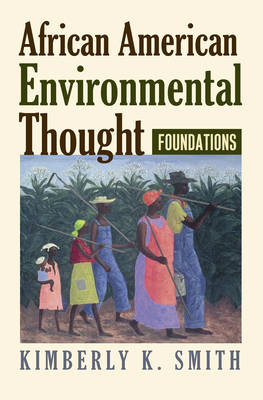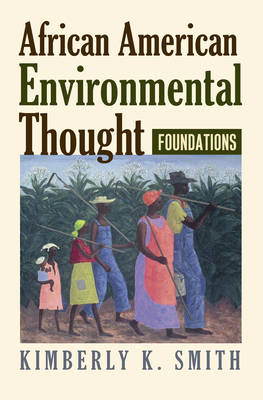
- Retrait gratuit dans votre magasin Club
- 7.000.000 titres dans notre catalogue
- Payer en toute sécurité
- Toujours un magasin près de chez vous
- Retrait gratuit dans votre magasin Club
- 7.000.000 titres dans notre catalogue
- Payer en toute sécurité
- Toujours un magasin près de chez vous
Description
African American intellectual thought has long provided a touchstone for national politics and civil rights, but, as Kimberly Smith reveals, it also has much to say about our relationship to nature. In this first single-authored book to link African American and environmental studies, Smith uncovers a rich tradition stretching from the abolition movement through the Harlem Renaissance, demonstrating that black Americans have been far from indifferent to environmental concerns. Beginning with environmental critiques of slave agriculture in the early nineteenth century and evolving through critical engagements with scientific racism, artistic primitivism, pragmatism, and twentieth-century urban reform, Smith highlights the continuity of twentieth-century black politics with earlier efforts by slaves and freedmen to possess the land. She examines the works of such canonical figures as Frederick Douglass, Booker T. Washington, W. E. B. Du Bois, and Alain Locke, all of whom wrote forcefully about how slavery and racial oppression affected black Americans' relationship to the environment Smith's analysis focuses on the importance of freedom in humans' relationship with nature. According to black theorists, the denial of freedom can distort one's relationship to the natural world, impairing stewardship and alienating one from the land. Her pathbreaking study offers the first linkage of the early conservation movement to black history, the first detailed description of black agrarianism, and the first analysis of scientific racism as an environmental theory. It also offers a new way to conceptualize black politics by bringing into view its environmental dimension, as well as a normative environmental theory grounded in pragmatism and aimed at identifying the social conditions for environmental virtue. Smith's work offers a new approach to established writers and thinkers and shows that they justly deserve a place in the canon of American environmental thought. African American Environmental Thought enriches our understanding of black politics and environmental history, and of environmental theory in general. Because slavery and racism have shaped the meaning of the American landscape, this body of thought offers us fresh conceptual resources by which we can make better sense of our world.
Spécifications
Parties prenantes
- Auteur(s) :
- Editeur:
Contenu
- Nombre de pages :
- 268
- Langue:
- Anglais
- Collection :
Caractéristiques
- EAN:
- 9780700615162
- Date de parution :
- 05-03-07
- Format:
- Livre relié
- Format numérique:
- Genaaid
- Dimensions :
- 161 mm x 236 mm
- Poids :
- 530 g







